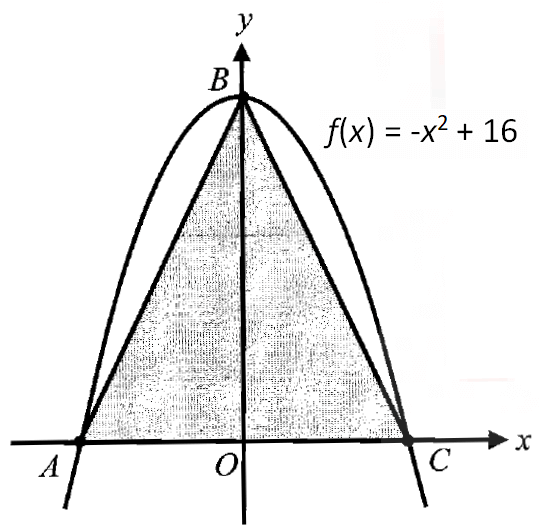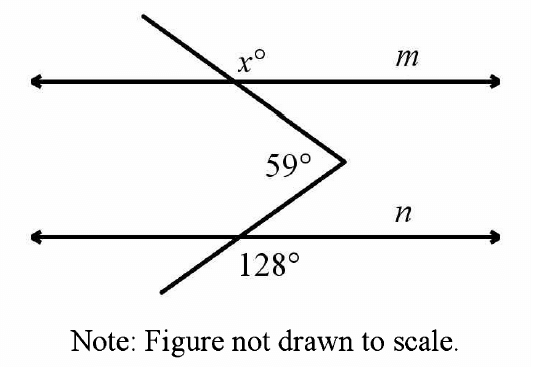ALGEBRAIC MANIPULATION PROBLEMS
Problem 1 :
Twice of Adam's present age is being subtracted from four times of his's age 5 years ago results his present age. What is the present age of Adam.
Solution :
Let x be Adam's present age.
Adam's age 5 years ago = x - 5
Given : When twice of Adam's present age is subtracted from four times of his age 5 years ago, the result is equal to his present age.
4(x - 5) - 2x = x
4x - 20 - 2x = x
2x - 20 = x
x - 20 = 0
x = 20
The present age of Adam is 20 years.
Problem 2 :
In a two digit number, the digit in ones place is thrice the digit in tens place. If 36 is added to the number, the digits are reversed. What is the number?
Solution :
Let y be the digit in tens place.
Then, the digit in ones place is 3y and the two digit number is
(y)(3y)
Given : If 36 is added to the number, the digits are reversed.
(y)(3y) + 36 = (3y)(y) ----(1)
Idea to solve the problem further :
Consider the two digit number 35. We have 3 in tens place and 5 in ones place. So, we can write 35 as
35 = 3(10) + 5(1)
(1)----> 10(y) + 1(3y) + 36 = 10(3y) + 1(y)
10y + 3y + 36 = 30y + y
13y + 36 = 31y
36 = 18y
2 = y
In the given number, the digit in tens place is 2. Then the digit in ones place is 6.
Therefor the number is 26.
Justification :
26 + 36 = 62
62 = 62 ✔
Problem 3 :
The perimeter of a rectangle is 32 cm. If the width of the rectangle is ⅗ of the length, find the area of the rectangle.
Solution :
Let x be the length of the rectangle.
Then, the width is ³ˣ⁄₅.
Perimeter of the rectangle = 32 cm
2(l + w) = 32
l + w = 16
⁵ˣ⁄₅ + ³ˣ⁄₅ = 16
⁽⁵ˣ ⁺ ³ˣ⁾⁄₅ = 16
5x + 3x = 80
8x = 80
x = 10
length = 10 cm
width = ³⁽¹⁰⁾⁄₅ = 6 cm
Area of the rectangle :
= l ⋅ w
= 10 ⋅ 6
= 60 cm2
Problem 4 :
The first of angle of a triangle is 7° more than its second angle. If the third angle is 13° more than twice the second angle, find the three angles of the triangle.
Solution :
From the information, both the second angle third angle are compared to the first angle. So we can assume a variable for the first angle and solve the problem.
Let x be the second angle.
Then,
the first angle = x + 7
the third angle = 2x + 13
In any triangle, sum of the the three angles is equal to 180°.
x + (x + 7) + (2x + 13) = 180
x + x + 7 + 2x + 13 = 180
4x + 20 = 180
4x = 160
x = 40
the second angle = 40°
the first angle = 40° + 7° = 47°
the third angle = 2(40°) + 13° = 93°
The three angles of the triangle are
47°, 47° and 93°
Problem 5 :
If one-fourth of a number is 6 less than one-half of the same number, find the number.
Solution :
Let x be the number.
Given : One-fourth of a number is less than one-half of the same number by 6
ˣ⁄₄ = ˣ⁄₂ - 6
The least common multiple of the two denominators (4, 2) is 4.
Multiply both sides of the equation by the least common multiple 4 to get rid of the denominators 2 and 4.
4(ˣ⁄₄) = 4(ˣ⁄₂ - 6)
x = 4(ˣ⁄₂) - 4(6)
x = 2x - 24
0 = x - 24
24 = x
The number is 24.
Justification :
One fourth of the number :
= ²⁴⁄₄
= 6 ----(1)
6 less than one-half of the same number :
= ²⁴⁄₂ - 6
= 12 - 6
= 6 ----(2)
(1) = (2)
Problem 6 :
If x > 0 and x2 - 2x - 35 = 0, then find the value of :
2x2 + 7x + 5
Solution :
Solve the quadratic equation x2 - 2x - 35 = 0.
x2 - 2x - 35 = 0
x2 - 7x + 5x - 35 = 0
x(x - 7) + 5(x - 7) = 0
(x - 7)(x + 5) = 0
x - 7 = 0 or x + 5 = 0
|
x - 7 = 0 x = 7 |
x + 5 = 0 x = -5 |
Since x > 0, x = 7.
To find the value of 2x2 + 7x + 5, plugin x = 7 into it.
= 2(7)2 + 7(7) + 5
= 2(49) + 49 + 5
= 98 + 49 + 5
= 152
Problem 7 :
If t < 0 and (t - 1)2 = 16, what is the value of t2 ?
Solution :
(t - 1)2 = 16
Take square root on both sides.
√(t - 1)2 = √16
t - 1 = ±4
t - 1 = 4 or t - 1 = -4
|
t - 1 = 4 t = 5 |
t - 1 = -4 t = -3 |
Since t < 0, t = -3.
t2 = (-3)2
t2 = 9
Problem 8 :
Let x be a real number which satisfies the relations
2x - 5 > 2
3x + 3 < 18
Which of the values can x take?
A) 4
B) 5
C) 6
D) 7
Solution :
|
2x - 5 > 2 2x > 7 x > 7/2 x > 3.5 ----(1) |
3x + 3 < 18 3x < 15 x < 5 ----(2) |
From (1) and (2),
3.5 < x < 5
In the answer choices given, the value 4 in (A) is in the above interval.
The correct answer choice is (A).
Problem 9 :
Calculate the fifth term of the sequence defined as
f(0) = 2
f(n + 1) = 2f(n) - 1 for n ≥ 0
Solution :
The given sequence is a recursive sequence in which each term is generated using one or more previous terms for which the values are already known.
Since n ≥ 0, the sequence starts when n = 0.
So, the first term is f(0), the second term is f(1), the third term is f(2) and so on.
The first term is f(0) = 2.
Substitute n = 0 in f(n + 1) = 2f(n) - 1 and evaluate f(1).
f(0 + 1) = 2f(0) - 1
f(1) = 2(2) - 1
f(1) = 3
The second term is f(1) = 3.
Substitute n = 1 in f(n + 1) = 2f(n) - 1 and evaluate f(2).
f(1 + 1) = 2f(1) - 1
f(2) = 2(3) - 1
f(2) = 5
The third term is f(2) = 5.
Substitute n = 2 in f(n + 1) = 2f(n) - 1 and evaluate f(3).
f(2 + 1) = 2f(2) - 1
f(3) = 2(5) - 1
f(3) = 9
The fourth term is f(3) = 9.
Substitute n = 3 in f(n + 1) = 2f(n) - 1 and evaluate f(4).
f(3 + 1) = 2f(3) - 1
f(4) = 2(9) - 1
f(4) = 17
The fifth term is f(4) = 17.
Problem 10 :
Find the domain of the function :
f(x) = ¹⁄₍₂ₓ ₋ ₃₎
Solution :
Domain of a function f(x) is all real values of x for which f(x) is defined.
In f(x) = ¹⁄₍₂ₓ ₋ ₃₎, if the denominator '2x - 3' is zero, f(x) is undefined.
To find the value of x for which the denominator is zero, equate the denominator '2x - 3' to zero and solve for x.
2x - 3 = 0
2x = 3
x = 1.5
In f(x) = ¹⁄₍₂ₓ ₋ ₃₎, if x = 1.5, the denominator becomes zero and f(x) is undefined.
Except x = 1.5, for all real values of x, f(x) is defined.
Therefore, the domain of f(x) is all real values except 1.5.
Domain of f(x) = R - {1.5}
Kindly mail your feedback to v4formath@gmail.com
We always appreciate your feedback.
©All rights reserved. onlinemath4all.com
Recent Articles
-
Digital SAT Math Problems and Solutions (Part - 143)
Apr 13, 25 12:01 PM
Digital SAT Math Problems and Solutions (Part - 143) -
Quadratic Equation Problems with Solutions
Apr 12, 25 08:21 PM
Quadratic Equation Problems with Solutions -
Digital SAT Math Problems and Solutions (Part - 142)
Apr 11, 25 06:26 PM
Digital SAT Math Problems and Solutions (Part - 142)

